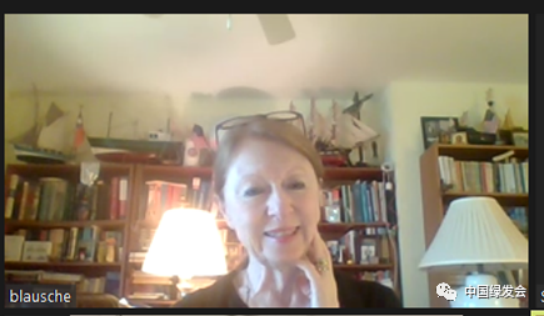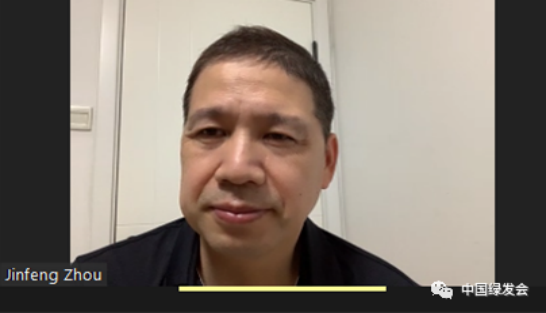On August 9, 2022, Dr. Zhou Jinfeng, Secretary-General of China Biodiversity Conservation and Green Development Foundation (CBCGDF), and Barbara Lausche, Chair of IUCN-WCPA Marine Connectivity Working Group (MCWG) had a one-on-one conversation. They had in-depth exchanges on the work of CBCGDF, marine conservation, the work of the MCWG in 2021, and MCWG general work plan for 2022-2024.
The Marine Connectivity Working Group (MCWG) was officially approved by World Commission on Protected Areas of the International Union for Conservation of Nature (IUCN WCPA) to meet the demand for connectivity conservation solutions that maintain, enhance, and restore the ecological connectivity of marine and coastal protected areas, marine biodiversity, and critical marine and coastal ecosystem services. MCWG’s mission is to advance marine connectivity conservation policies, programs, and practice through collaboration in science, planning, management, governance, and policy with an emphasis on advancing practical guidance, principles, methods, and tools that maintain, restore, and enhance the long-term ecological integrity of marine protected areas, marine ecosystems, and other biodiversity-rich marine areas, including Key Biodiversity Areas and World Heritage Sites. In 2019, Dr. Zhou Jinfeng was elected as the executive member of MCWG.

At the meeting, Dr. Zhou introduced the work of CBCGDF, including the protection of the Shanghai Nanhui Dongtan Wetland.
Dr. Zhou Jinfeng said: At present, CBCGDF has supported the establishment of a series of Chinese protected areas focusing on coastal wetlands and bird habitat protection. Through the participation of the people, the coastal zone and coastal ecosystems are protected. Nanhui Dongtan Wetland Reserve in Shanghai is one of them.
In the spring of 2018, local volunteers reported to us that in order to achieve the goal of tree planting, a large number of trees were planted in the coastal wetlands of the Lingang area, which destroyed the ecology of the coastal wetlands. We immediately carried out investigation and research, and made recommendations, suggesting that the site should be re-assessed to protect the local tidal flat ecosystem while considering economic development. Our efforts have successfully promoted the process of ecological environmental protection and ecological civilization construction in China.


Chair Barbara Lausche thanked Dr. Zhou for his introduction, and expressed her appreciation and admiration for the work of CBCGDF, which gave her a good chance to understand the efforts of Chinese social organizations in protecting the ocean and participating in global ocean governance. She hoped that CBCGDF can share this success story with the Ocean Connectivity Working Group.
Original Chinese Article:
https://mp.weixin.qq.com/s/Z9mrdj7KT3H5XdMk_knCgATranslator: Sara
Checked by: Lucy
Editor: Maggie
Contact: v10@cbcgdf.org; +8617319454776

Contribution
Do you know? CBCGDF is a non-profit organization. We rely on crowd-funding and donations. You have the opportunity to help us to advance biodiversity conservation. Donate TODAY to power up the movement to make it a better world for all life.
https://www.paypal.me/CBCGDFChina
http://www.cbcgdf.org/English/ConfirmDonaTion/0.html
